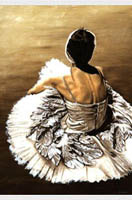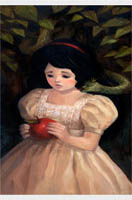- Oil Painting »
- Model
Model
A model is a substitute for or an abstraction of a specific thing. Specific meanings:
For models in society, art, fashion, and cosmetics, see;
role model
Model (art)
model (person)
supermodel
figure drawing modeling section
In science and technology, a model (abstract) is understood as an
abstract or theoretical representation of a phenomenon,see;
geologic modeling
model (economics)
model (macroeconomics)
statistical model
mathematical model
model organism
conceptual model
metamodel
In visual effects, a model (CGI) is a computer generated image of
a character or object for film or television
For modeling in software design see modelling language and software
modeling.
In mathematics, particularly in set theory, a model is some concrete
realization of a set of axioms (in a sense this is the opposite
of the previous definition). See model theory.
In cognitive psychology a mental model is an explanation of a thought
process. See knowledge representation.
In science, technology, and leisure for models as physical representations
see model (physical). Similitude (model) is testing criteria of
a model to insure that results are applicable to the real thing.
In Engineering, a solid model may refer to 3D CAD representation,
see solid modelling.
A scale model is a replica or prototype of an object built either
for research or as a hobby, usually built smaller than the existing
or intended thing, though can equally be built larger to illustrate
something that would otherwise be hard to see. Plastic models are
very common for hobbyists.
In neuro-linguistic programming (NLP) modelling refers to the systematic
unpacking and sequencing of the conscious and unconscious processes.
See modeling (NLP).
In world politics, MODEL refers to the Movement for Democracy in
Liberia organization.
In video games or computer modelling, a model (game) is a fully-3D,
polygonal object or character.
In automobiles, a model is a type of vehicle sold under a marque







